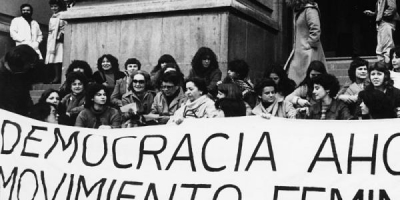Our current strength in gender builds on the department’s well-established reputation in women’s history. Women’s history remains a central concern for many of us. We explore the contours of women’s lives, their active participation in the dynamics of history, and the societal structures that defined the limits and possibilities they faced. For many of us, those questions about women remain connected to our current engagement with gender. Gender, however, also transcends the field of women’s history, because it shifts the focus to the specific historical contexts that shaped what it meant to be a man as well as a woman. Gender emphasizes how conceptions of men’s and women’s roles have always been socially constructed, making it possible to historicize qualities of masculinity and femininity that were once attributed to nature. Gender also reveals the broader implications of conceptions of masculinity and femininity for various power dynamics—social, cultural, economic, and political. Given its analytical power, gender features in our work differently. Some of us study the development of gender roles and conceptions of femininity and masculinity as subjects in their own right. Others use gender primarily as an analytical tool to obtain new insight into topics such as race relations, economic inequality, sexuality, legal change, policy and politics. But what connects all of our work is the way that we use gender to reveal new, exciting elements of the past.
History graduate students may pursue a Certificate in Feminist Studies as well as take courses in Duke’s Gender, Sexuality and Feminist Studies and UNC’s program in Women’s and Gender History, participate in the Pauli Murray Project or attend the annual Anne Firor Scott Lectures, which honor Duke Emeritus Professor Anne Scott’s pioneering work to launch the field of women’s history by bringing leading scholars to speak and meet with graduate students in this area.














